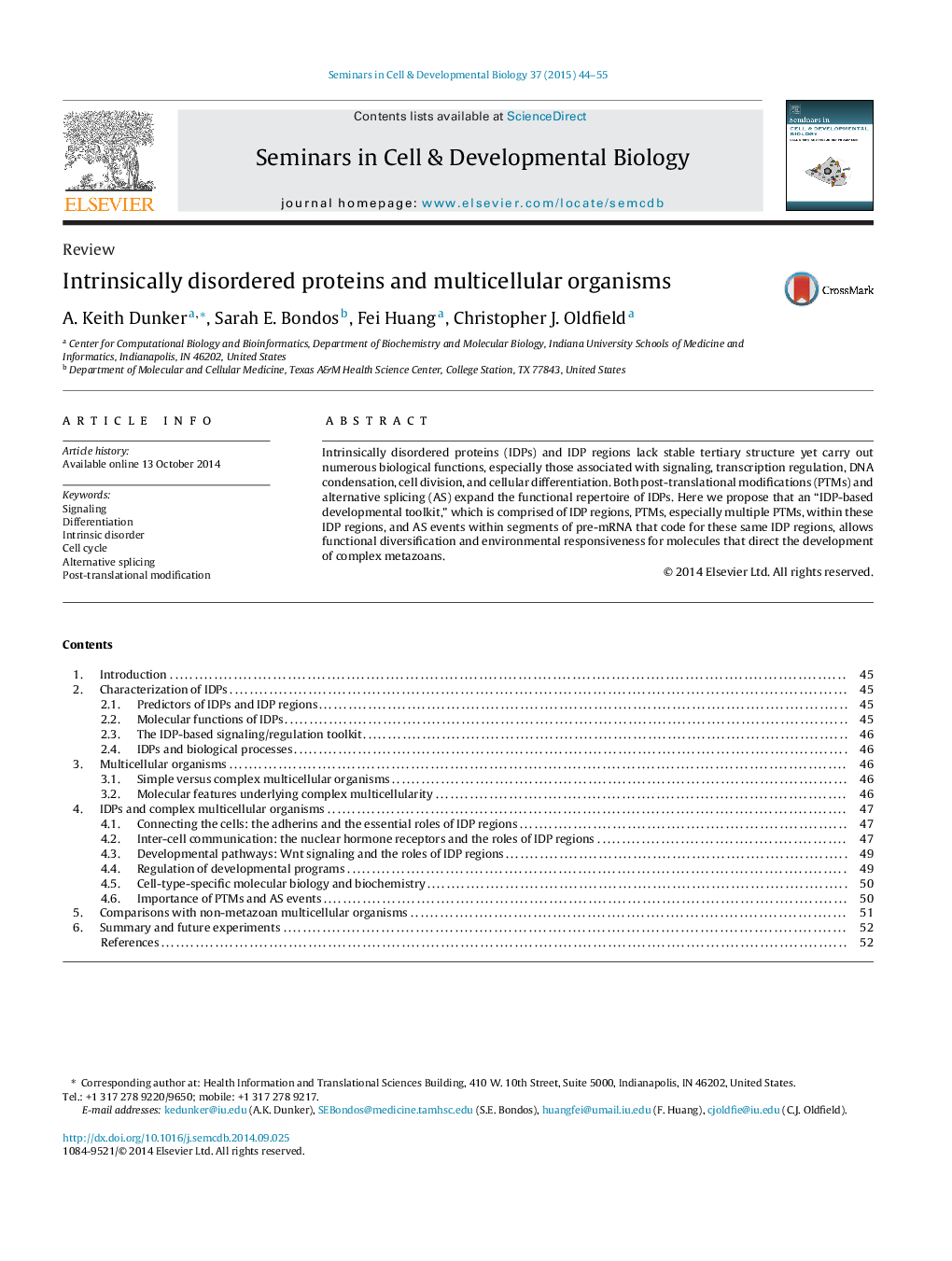| Article ID | Journal | Published Year | Pages | File Type |
|---|---|---|---|---|
| 2202618 | Seminars in Cell & Developmental Biology | 2015 | 12 Pages |
•Intrinsic disorder (ID) was vital for the evolution of complex multicellularity.•Processes unique to complex multicellular organisms rely heavily on ID.•Effective alternative splicing (AS) of functional elements is enabled by ID.•Post-translational modifications (PTMs) occur in ID regions, altering function.•ID, PTM, and AS comprise a development toolkit for complex multicellularity.
Intrinsically disordered proteins (IDPs) and IDP regions lack stable tertiary structure yet carry out numerous biological functions, especially those associated with signaling, transcription regulation, DNA condensation, cell division, and cellular differentiation. Both post-translational modifications (PTMs) and alternative splicing (AS) expand the functional repertoire of IDPs. Here we propose that an “IDP-based developmental toolkit,” which is comprised of IDP regions, PTMs, especially multiple PTMs, within these IDP regions, and AS events within segments of pre-mRNA that code for these same IDP regions, allows functional diversification and environmental responsiveness for molecules that direct the development of complex metazoans.
